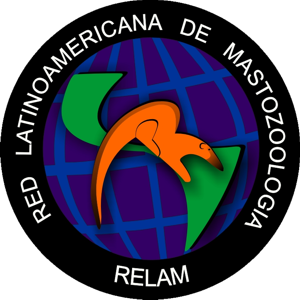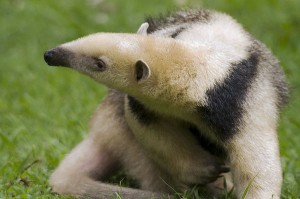
History
The RELAM was created on August 12, 2009, at the 10th International Mammalogical Congress (IMC-10) held at Mendoza (Argentina), as part of a meeting organized by the SAREM and the Asociación Boliviana de Investigadores en Mamíferos (ABIMA). Fourty-six people from several Societies and countries are considered to be founding members of the RELAM.
Members
The names of RELAM’s founding members are listed here by country and alphabetic order:
Argentina | Rubén Barquez, Joaquín Brunet, Cecilia Castilla, Verónica Chillo, Verónica Damino, M. Mónica Díaz, Ignacio Ferro, David Flores, Raúl González Ittig, Gabriel M. Martin, Juan José Martínez, Mariano L. Merino and Marcos Mollerach
Bolivia | Luis Aguirre, José Carlos Pérez Zubieta, Jorge Salazar-Bravo and Lizette Siles
Brazil | João Alves de Oliveira, Diego Astua de Moraes, Cibele R. Bonvicino, Cibele Gomes de Sotero Caio and Marcelo Weksler
Chile | Eduardo Palma
Colombia | Camilo Andrés Calderón Acevedo, Hugo Mantilla, Héctor Ramírez-Chaves, Miguel Eduardo Rodriguez Posada and Sergio Solari
Cuba | Rafael Borroto Páez
Ecuador | Juan Pablo Carrera and Miguel Pinto
Guatemala | Nicté Ordoñez-Garza
Mexico | Cynthia Elizalde Arellano, Sonia Gallina, José Antonio Guerrero, Juan Carlos López Vidal, Jorge Ortega and Areli Rizo
Panama | Jorge Luis Pino
Peru | Mónica Alzamora Torres, Fanny Cornejo, Sandra Mori Carpio, Carlos Tello and Horacio Zeballos
Venezuela | Marisol Aguilera
Societies
The following members from each Society and country were appointed to the ad hoc Committee, while M. Mónica Díaz was appointed as its President.
ABIMA (Asociación Boliviana de Investigadores en Mamíferos) | Luis Aguirre
AMMAC (Asociación Mexicana de Mastozoología) | Sonia Gallina Tessaro
GTMES (Grupo de Trabajo de Mastozoología de El Salvador) | Stefany Henriquez
SAREM (Sociedad Argentina para el Estudio de los Mamíferos) | Ulyses F.J. Pardiñas
SBMz (Sociedade Brasileira de Mastozoologia) | Cibele Rodrigues Bonvicino
SPM (Sociedad Peruana de Mastozoología) | Fanny Cornejo
SOMASPA (Sociedad Mastozoológica de Panamá) | Jorge Luis Pino
AsoVEM (Asociación Venezolana para el Estudio de los Mamíferos) | Daniel Lew
SCMas (Sociedad Colombiana de Mastozoología) | Hugo Mantilla
AEM (Asociación Ecuatoriana de Mastozoología) | Diego Tirira
Delegates of Countries that do not have a Mammalogy Society
Chile | Eduardo Palma
Costa Rica | Javier Carazo, Hellen Lobo
Cuba | Rafael Borroto Páez
Guatemala | Nicté Ordoñez-Garza
Honduras | Héctor Portillo Reyes
Paraguay | Noé de la Sancha
Uruguay | Gabriel Francescoli
The RELAM was created as a response to the common problems and needs faced by Latin American Mammalogical Societies. Some of these needs are:
- To promote communication and information exchange between mammalogists from Latin American countries.
- To promote Mammalogy as a field of research among new generations of students.
- To encourage scientists and students to contact their national mammal societies.
Thus, the main goal of this network is to integrate Mammalogical Societies throughout the Region, favoring collaboration between existing Societies and promoting their creation in those nations where they are still non-existent.
General Goals
- To encourage the scientific and technical development of participant countries in the study of mammals.
- To promote scientific research between participating countries, setting priorities in the conservation and management of mammals and their habitat.
- To stimulate the scientific and technical cooperation between participating countries through academic and practical collaboration involving mammalogical research and training.
- To promote greater self-sufficiency and stronger, more favorable international relationships among Latin American countries.
- To identify common research interests between Societies within the network, in order to develop joint strategies to promote and finance scientific research at the regional level.
- To provide technical assistance and advice on regional policies concerning the management and conservation of mammals throughout Latin America.
- To serve as the main channel of communication and dissemination of the scientific activities of the societies belonging to the network.
Particular Goals
- To promote Mammalogy at regional level through the increase in number of researchers, in order to strengthen mammalogy and their respective mammalogical societies.
- To support the allocation of funds to promote local and regional research on mammals, oriented toward the development of conservation and management policies.
- To promote the exchange of information between mammalogists and students from Latin America, to stimulate sharing of experiences, training and integration.
- To facilitate academic and field training of researchers and students through grants-in-aid, available to support attendance to courses, workshops, seminaries, and/or meetings.
- To encourage the discussion, evaluation, approval and communication of policies and regulations concerning the study, management and collection of mammals in Latin American countries.
Tasks
- To promote and organize a Latin American Mammalogical Congress every four years. The RELAM would also be in charge of organizing workshops and simposia on subjects of specific interest to the Regional community, contacting key-note speakers for each case.
- To encourage courses for students and young scientists in different areas of Mammalogy.
- To create a dedicated website in order to make public to the scientific community the works carried out by the RELAM and its mission, as well as to inform about its activities in the sites of the different mammalogical societies.
- To develop an electronic bulletin with the activities carried out by the RELAM.
- To obtain funds and sponsorship for courses and other activities of interest to the RELAM.
Members
RELAM gathers members of Latin American Mammal Societies, delegates from countries where these Societies are in the process of being formed, and groups or sections of mammalogists from already formed Zoological Societies.
Steering Committee
RELAM is managed by a Directive Committee formed by delegates from all participating Societies. Currently an ad hoc Committee is preparing the statute and by-laws to be discussed in an expanded meeting of all its members.

